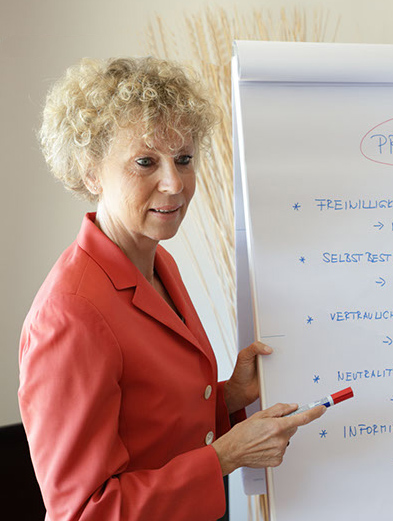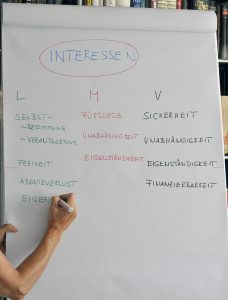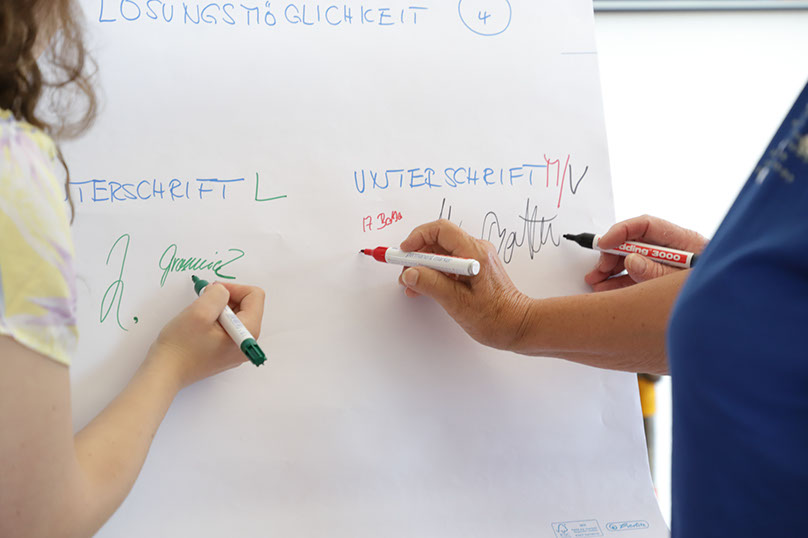Mediation is much more flexible than a litigation or arbitration proceeding. The time frame is not restricted and basically up to the parties‘ sole discretion. Resulting from its intrinsic structure, however, every mediation is subject to the following procedure:
Agreement
In a first preliminary meeting, the mediator sorts out the parties‘ mutual expectations and targets and whether, these mutual intentions given, a mediation procedure is the right option. If so, the mediator explains the principles and the procedure of a mediation. The conflicting parties then mandate the mediator by agreement (usually in writing) to conduct the procedure. This contract usually contains individual provisions with respect to the parties‘ obligation to mutual confidentiality as well as to the costs (as a rule pro rata/quotas).


Presentation of Issues
After that each side is given the opportunity to state its case and view of the conflict. The mediator draws up a list of all issues the respective party wants to deal with. The parties then decide jointly in which order they want to discuss which topic.
Consideration of Interests
Under the guidance of the mediator the parties develop the reasons underlying their varying positions and points of view. This phase of the procedure is vital as it aims at the parties‘ perception of both its own motives and interests as well as those of the conflicting opponents. Usually this happens in a joint meeting, all parties being present, but may also be subject to one-to-one-interviews with the mediator alone (“caucus”); provided all parties consent to such procedure.


Solution options
As a start and on the basis of the mutual known interests, the parties seek for possible solutions of their conflict; at first without evaluation. In a second step, they negotiate autonomously, whether and which solution options they deem fair and appropriate for all of them. The parties may additionally seek professional external help (lawyers, public accountants etc.) to evaluate and decide whether the solutions thought of are feasible and can be implemented.
Settlement Agreement
Only if all parties express their consent, the solutions jointly developed are fixed in writing and signed by them. Usually, this contract is already legally effective and thus binding. If further formal requirements are statutory and, for instance, notarization is mandatory (f. i. transfer of real estate or corporate shares, regulations concerning pension right adjusments or right of succession), the mediator has to give advise.

In practice it has become apparent that circumstances underlying solutions once agreed upon may change. Therefore, settlement agreements should be reconsidered after some time and checked they are still feasible in real life (evaluation). However, this is as well subject to the principle governing every mediation:
Nothing happens against your will!
